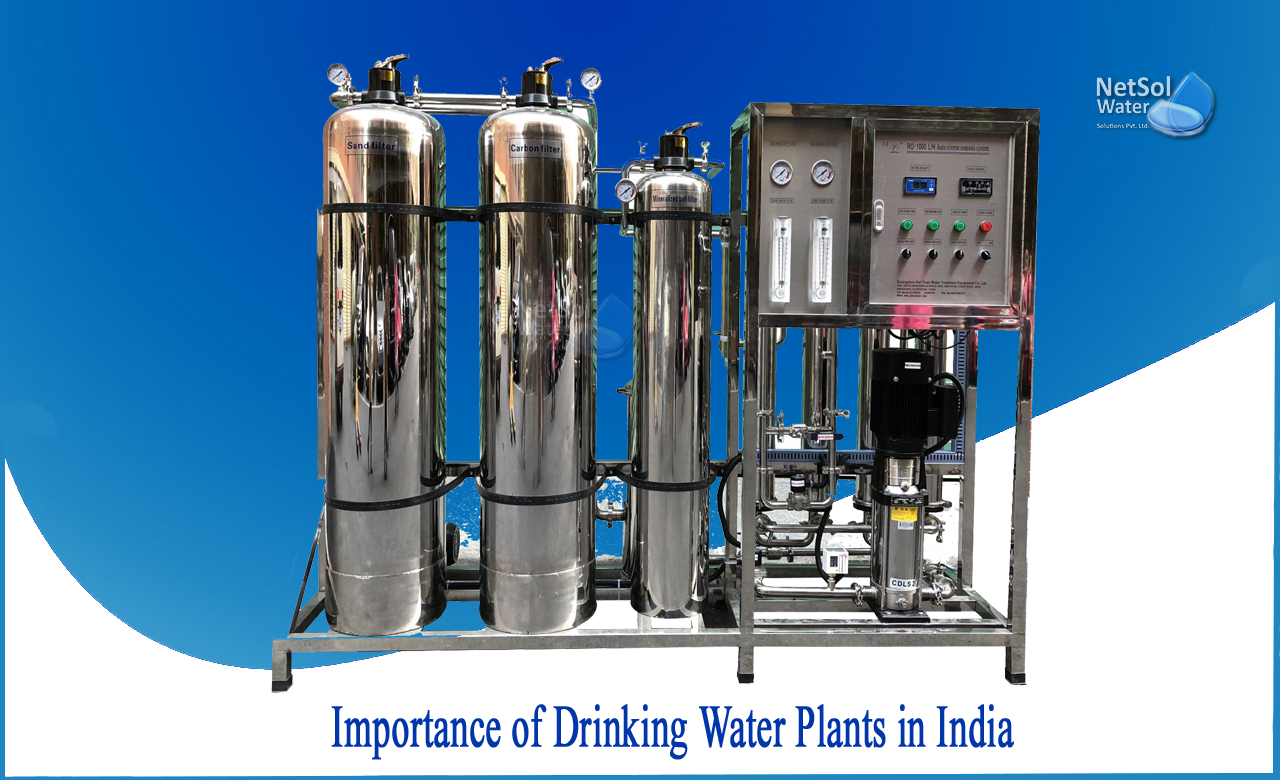What is the importance of a drinking water treatment plant?
The municipal regions rely on a variety of natural water bodies and reservoirs for fresh water. The water gathered from natural bodies of water and reservoirs is chemically treated to make it appropriate for drinking and other daily activities. Water is transported in billions of litres from the plants to the municipal areas. The major goal is to offer residents in urbanised areas with safe and clean drinking water.
Requirement of an effective water treatment facility
With the passage of time, the population grows, resulting in an increase in fresh water usage. The amount of fresh water is continually diminishing due to climate change and the rise of the industrial sector. Another issue that pollutes water and the environment, affecting human health, is increasing pollution. Wastewater from both urban and industrial locations is discharged into surface water bodies, degrading the quality of the water. It is critical to treat wastewater and convert it to potable water that can be used for a variety of reasons, including consumption, in order to maintain a balance of quantity and quality of water.
Why water treatment is a necessity in India?
One of the consequences of India's rush to become a more industrialised economy has been the deterioration of our environment. Unfortunately, rapid industrialisation has increased the amount of contaminants in our environment. Wastewater is one of these contaminants. In India, wastewater management through wastewater treatment facilities has become a need in our cities today.
Another effect of rising wastewater levels is an increase in the number of bacteria in the environment. It is not only unsafe for drinking, but it may also pollute other water supplies. For example, dirty water seeps into rivers, contaminating them. When contaminated water flows downstream and mixes with other water sources, such as rivers, the pollution spreads even further. In addition, wastewater leaks into the earth, damaging subsurface water supplies. As a result, practically every water source, from rivers and wells to coastal regions, is now badly contaminated.
To summarise, some of the consequences of growing wastewater levels include:
India is known for the abundance of these effects that gives a dire need of water treatment facilities, some of them are mentioned as:
>Effects on river and marine life are negative
>Lack of access to safe drinking water
>An excess of some hazardous substances, some of which are chronic &Groundwater contamination
>Pollution of the soil
In all living organisms, there has been an increase in chronic health issues linked to hazardous substances such as lead and mercury.
Pollution in coastal areas is on the rise!
In order to keep the installation of water treatment plant in everyone’s mind here, it would be nice to conclude the above discussion by mentioning some challenges which India still faces:
The following are some of India's ongoing challenges:
1: Lack of knowledge
2: There is a lack of public-private collaboration on wastewater management
3: Apathy on the part of certain administrations
4: There is a lack of a well-coordinated national effort
5: Uneven distribution of wastewater and treatment plants
In India, wastewater treatment facilities have become an integral part of the landscape, critical to the health of our people and the environment.
Conclusion:
Netsol creates and produces drinking Water Treatment Plants that purify and treat water derived from a variety of sources, making it safe for consumption and other daily activities. Chemicals, particulates, organic compounds, and other wastes are removed from the waterby water treatment plants, which then treat the water to produce clean, drinkable water that may be used for cooking, cleaning, and other purposes. The water treatment facility that is used to purify water and make it fit for human consumption assures that there are no short- or long-term health concerns from dirty water.



